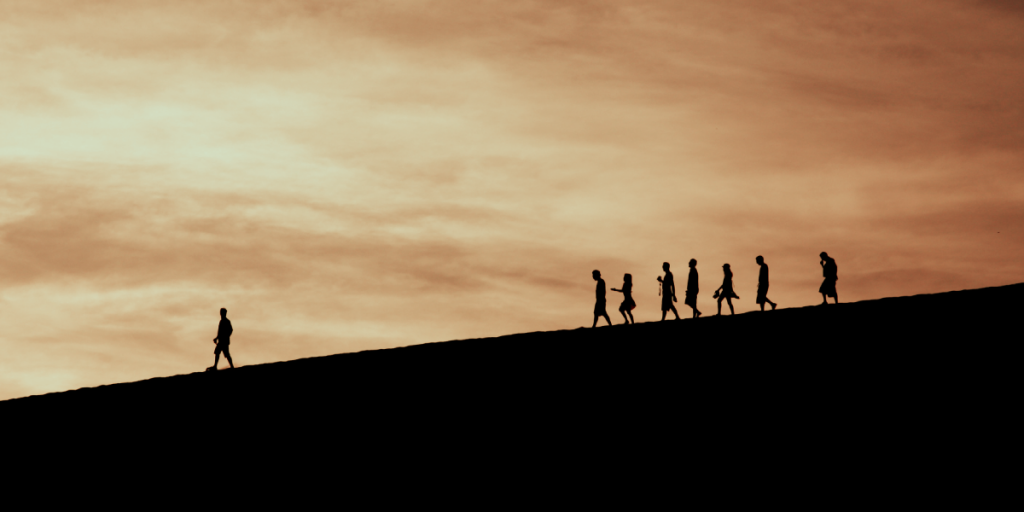NEW YEAR: What’s it all about?
Another year has just come to an end as as we wave goodbye to 2021
I am again reminded of the many different ways that we all usher in the new year.
Being brought up in the west the new year is greeted with great celebration. Many people will party, drink, set off fireworks hold gatherings and carouse the night away.
So, how did this all get started? Who invented the ‘New Year’ How can it be useful for us? How should Muslims celebrate this time of year?
Lets take a look at these questions.
Origins of New Year
The ancient Babylonian calendar was lunisolar, and around the year
2000BC 1 began observing a spring festival and the new year during the month of Nisan, around the time of the March equinox.
The early Roman calendar designated 1st March as the first day of the year 2 The calendar had just 10 months, beginning with March.
Roman mythology usually credits their second king Numa with the establishment of the two new months of Ianuarius and Februarius. These were first placed at the end of the year, but at some point came to be considered the first two months instead 3
The start of the month of January, came to be celebrated as the new year at some point after it became the day for the inauguration of new consuls in 153 BC. 4
However, celebrations around the March new year continued for some time and there is no particular consensus about when the 1st January gained its new status 5 Once it became the new year, however, it became a time for family gatherings and celebrations.
The acceptance of New Years by most of the European countries i.e. France, Sweden, Italy, Germany, Netherlands, Norway, Denmark, Spain, Portugal etc occurred in the 1500s. 4
Scotland started from 1600, Russia from 1725 and England, Wales, Ireland, and Britain’s American colonies did so from 1752 6
How can the New Year be useful for us?
There are a couple of pretty well known thoughts that sum up for me what the New year can signify.
Tony Robbins, author, speaker, mindset trainer says:
“If you sincerely want to change your life, raise your standards: What changes people is when their shoulds become musts” 7
Attributed to Brad Paisley, singer, songwriter:
“Tomorrow, is the first blank page of a 365 page book. Write a good one.“ 8
As Bob Paisley says the new year gives us 365 clear days…..Many of us use this time frame to set goals for ourselves. Some of the most common goals are: 9
- Exercise more
- Lose weight
- Get organised
- Learn a new skill or hobby
- Live life to the fullest
- Save more money / spend less money
- Quit smoking
- Spend more time with family and friends
- Travel more
- Read more
So goal setting is an incredibly valuable aspect of the new year.
Unfortunately, the downside is that many people will give up on their new year goals within the first few weeks, January 18/19th being the most popular date to do so. 10
However, when utilised correctly setting new year goals and sticking to them can radically transform whichever area of our lives we feel needs improvement.
It has been my personal experience that whenever i have set specific goals for myself at new years and attached a powerful reason (why) behind the need to achieve those goals, then I have, on the whole been successful in achieving them.
One very important aspect that I learnt was the need to attach a very powerful Why to my goal. For more on this I would suggest watching entrepreneur and speaker Simon Sinek expand on this. 11
How should Muslims celebrate the new year?
The simplest way to answer this question is to have an understanding of what it means to be a muslim ie what is our purpose? what is our why?
Let us start with the word Islam:
“Islam, a name given by Allah to this religion (Quran 5:4), is an Arabic word which literally means obedience and peace. ISLAM is derived from the Arabic root “SALEMA”: peace, purity, submission and obedience. So ‘Islam’ would mean the path of those who are obedient to Allah and who establish peace with Him and His creatures. Its follower are called Muslims” 12
God tells us in the Holy Quran:
And I have not created the Jinn and the men but that they may worship Me.51:57 (13)
The life of this world is but a sport and a pastime, and if you believe and be righteous, He will give you your rewards, and will not ask of you your possessions. 47:37 (14)
Wealth and children are an ornament of the life of this world. But enduring good works are better in the sight of thy Lord in respect of immediate reward, and better in respect of future hope. 18:47 (15)
As we can see the purpose of the life of a muslim is the worship of God and service to mankind.
In this context it would make sense to set goals for the new year that help us achieve this.
Following the 5 key pillars of Islam are essential. Find out more here 16
The 5 daily prayers form one of these key pillars and starting the New Year with extra/voluntary prayers and committing to performing them regularly would be a very valuable goal for a muslim.
In conclusion, there are many ways to utilise the new year, there are many ways to celebrate the new year.
For a muslim, the commandments of God are clear……we are here to worship Him and develop an ever closer bond with Him and find a way to serve mankind.
May the Lord provide us with the strength to carry out his commands.
This blog is based on a Voice of Islam radio show. 17
References:
- History Stories: Ancient New Year’s Celebrations
- Infoplease: History of New Year
- Book: Forsythe, Gary. “Time in Roman Religion: One Thousand Years of Religious History” (2012). Google Books
- Wikipedia: New Year’s Day
- Wikipedia: New Year’s Day Reference 8: Michels, A.K. “The Calendar of the Roman Republic” (Princeton, 1967), pp. 97–98.
- Book: Bond, John James. “Handy-book of Rules and Tables for Verifying Dates” (page 91). Google Books
- Tony Robbins Quotes: Google Image Search
- QuotePark: Brad Paisley Quote
- GoSkills: Top 10 New Year’s Resolutions
- Inc.: Study on New Year’s Resolutions
- YouTube: Simon Sinek – Start with Why
- Al Islam: Islam
- Holy Quran: Chapter 51, Verse 57
- Holy Quran: Chapter 47, Verse 37
- Holy Quran: Chapter 18, Verse 47
- Al Islam: Five Pillars of Islam
- SoundCloud: VOI Drivetime Show Podcast – New Year: Bring About a Real Change



